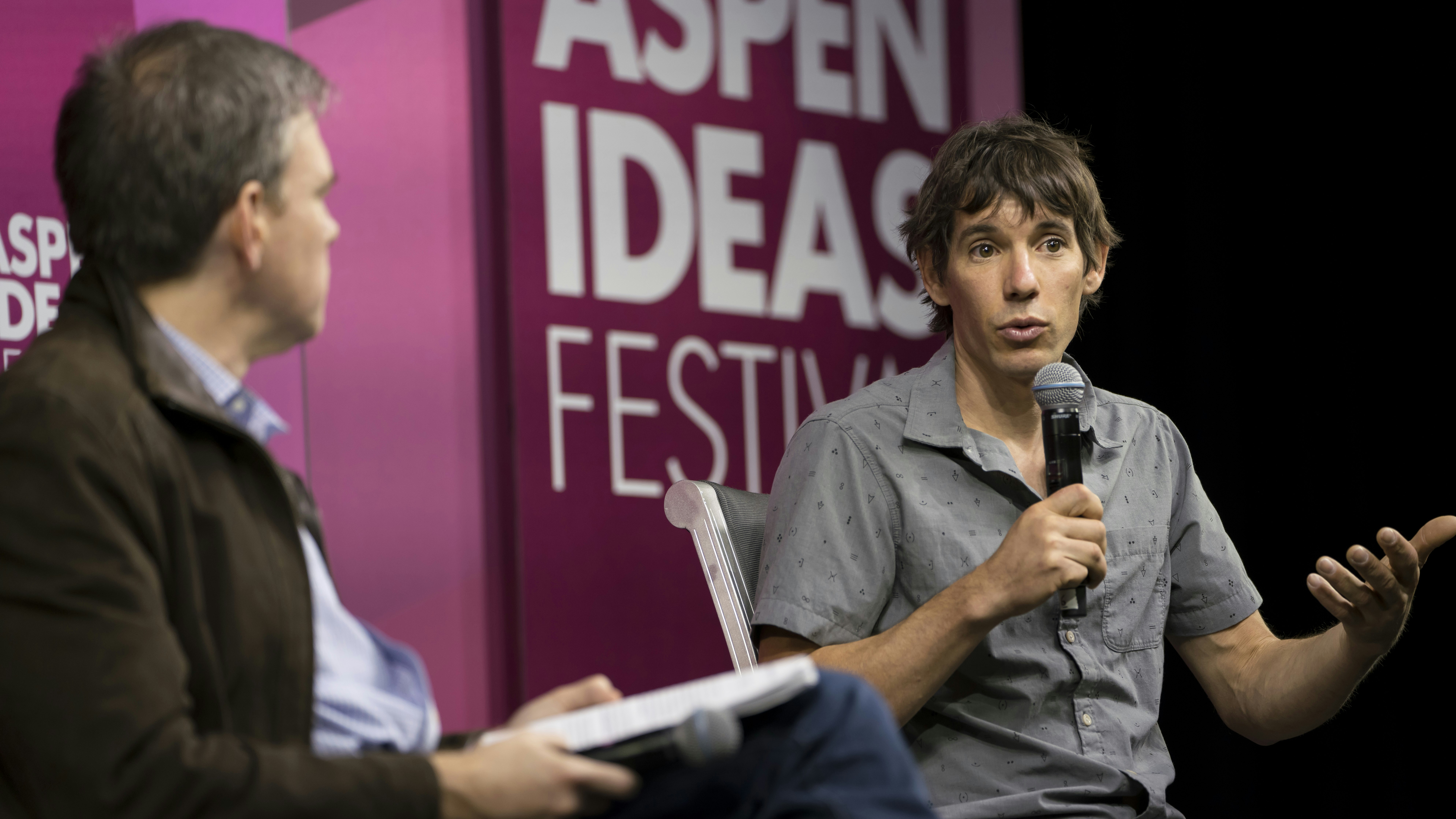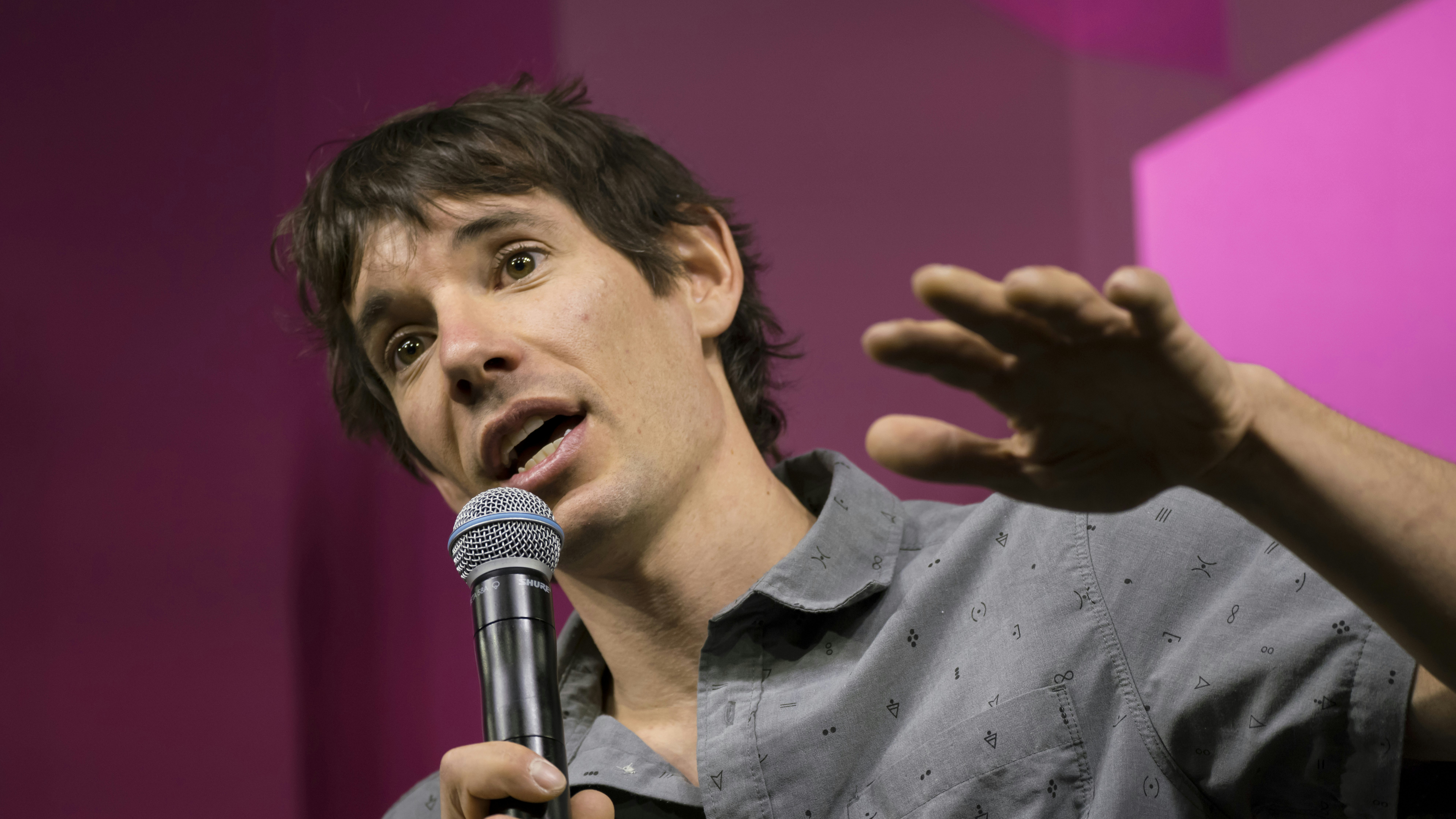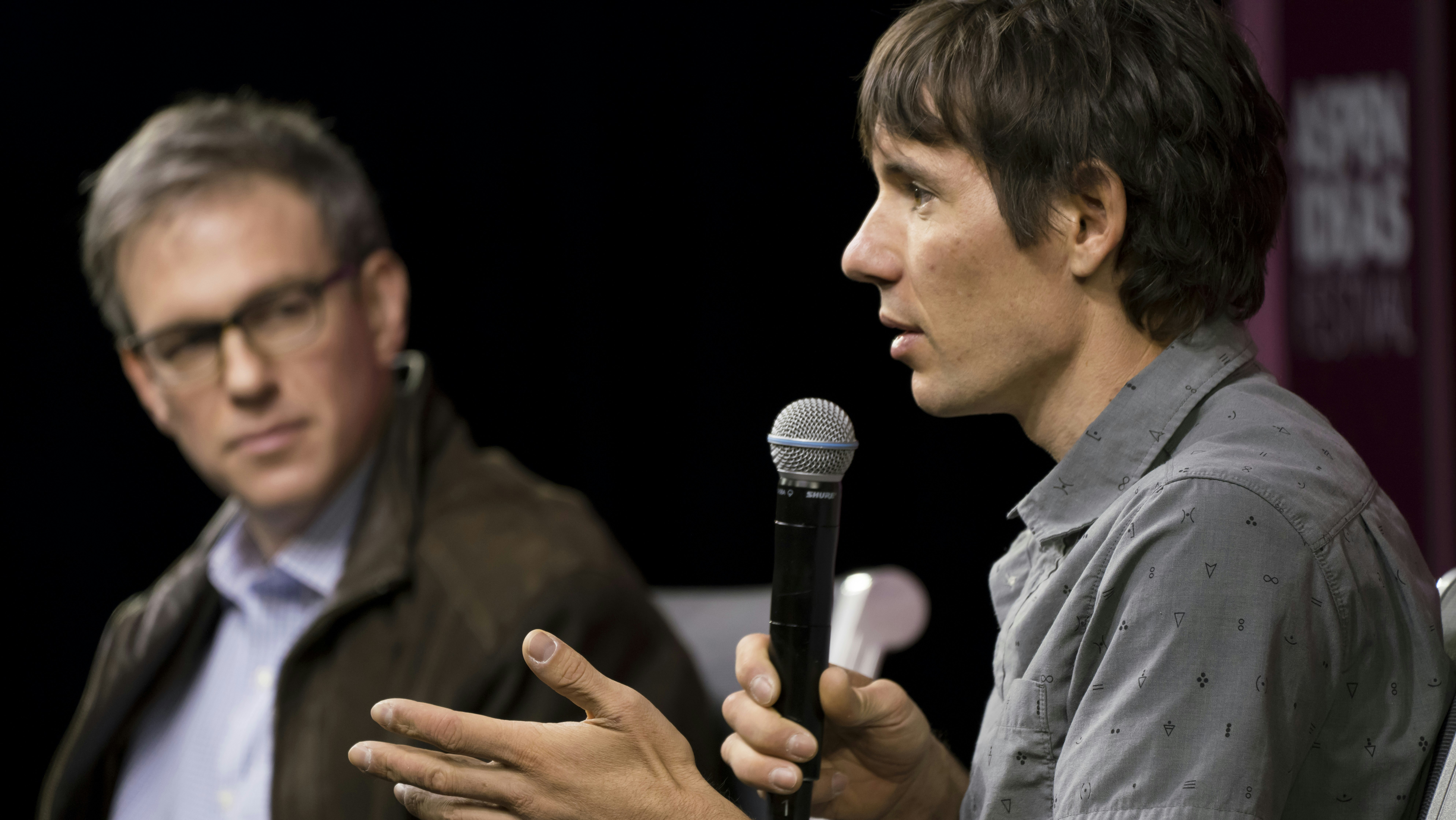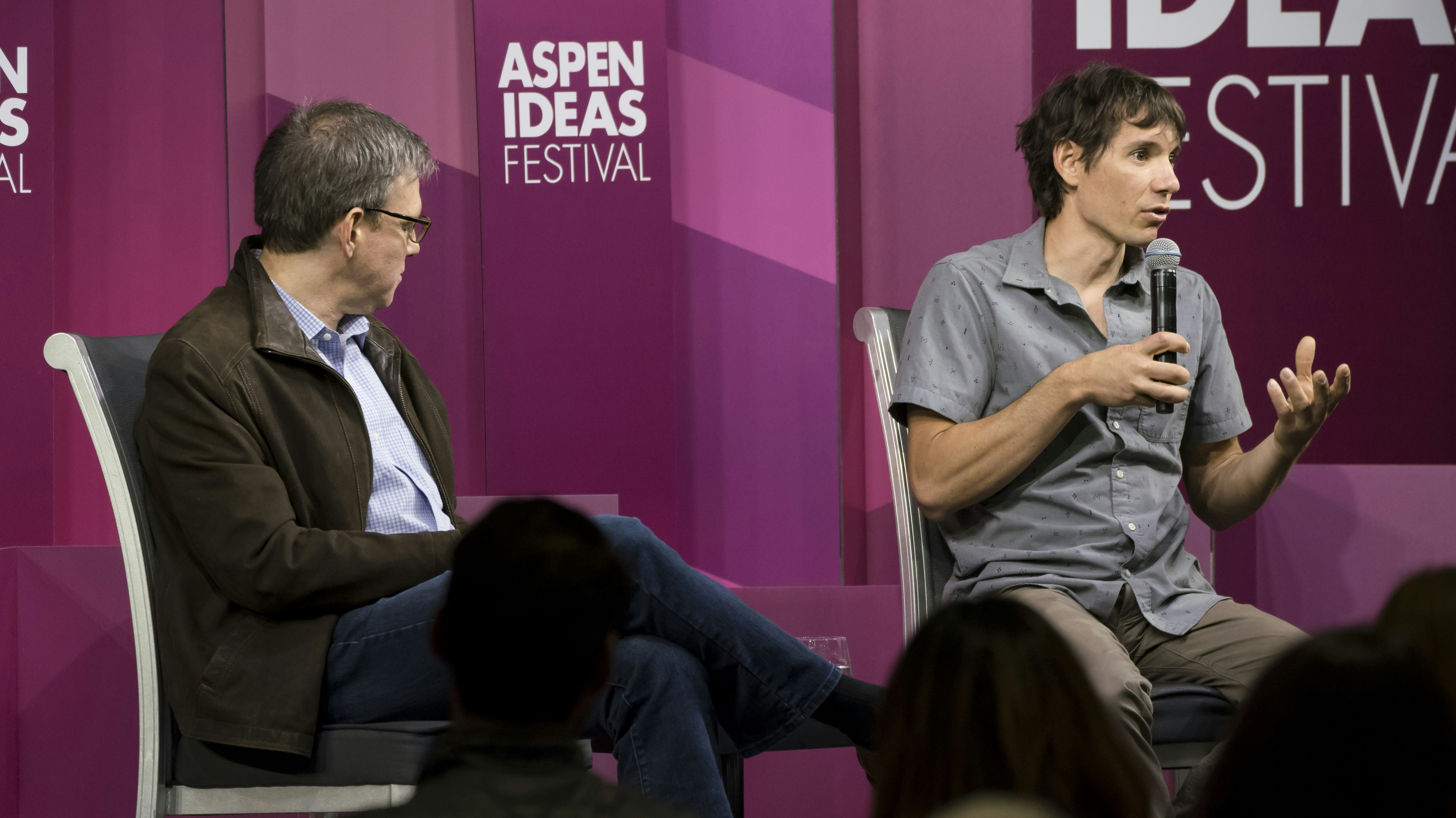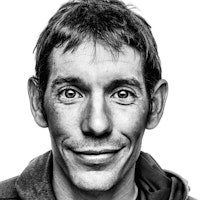
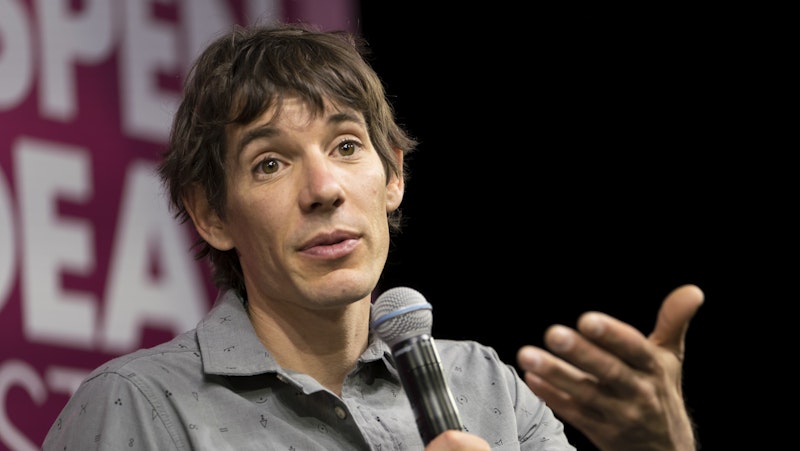
Alex Honnold: A Soul Freed
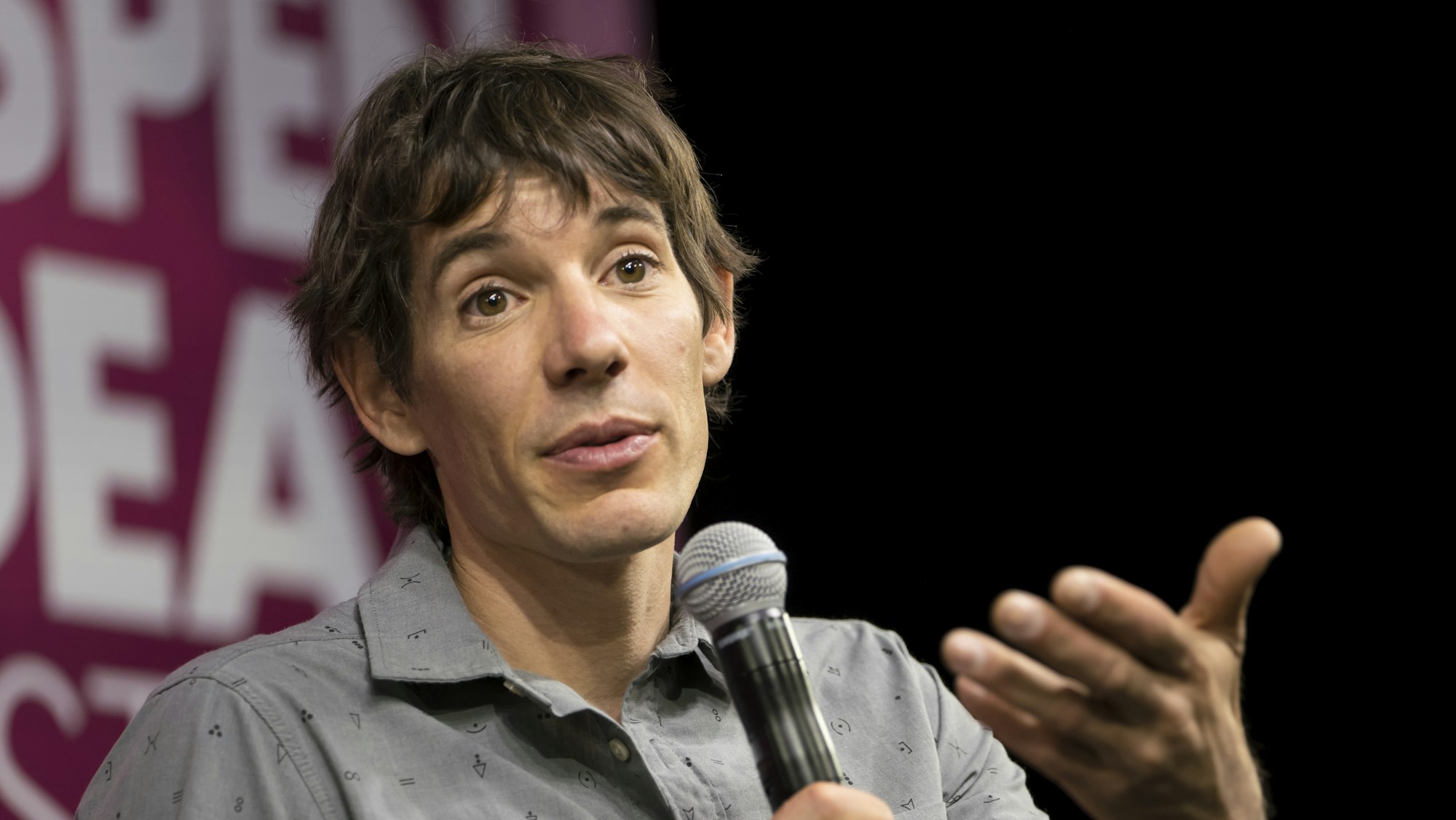
I’d been there physically for quite a long time. Really, it was the mental side that took so many years to develop.
Setup
On June 3, 2017, Alex Honnold became the first person to climb the 3,000-vertical-foot granite face of Yosemite’s El Capitan, alone, without ropes, a feat that was chronicled in the Academy Award-winning documentary, Free Solo. In his New York Times op-ed column, Bret Stephens wrote that with that act, “Honnold gave an extraordinary gift to everyone who believes that the limit of human achievement is far from being reached.” The climber and journalist explore questions like: How do you manage fear? What's the line between daring and recklessness? What should we sacrifice in the pursuit of excellence? And what is the connection between freedom and happiness?
- 2019 Festival
- Society
- Health
- Full transcript
Mentality, muscles, and 3,000 feet of rock
Free soloing, or rock climbing without any ropes or safety equipment, takes a staggering amount of physical strength. But when Alex Honnold decided to climb El Capitan in Yosemite National Park, he was more concerned about his mental confidence:
From dirtbagging to the cover of Nat Geo
Before Alex Honnold became famous for his free soloing feats, he was a full-time dirtbag who admired the graceful accomplishments of other record-setting climbers. But that all changed when it was his turn to achieve the impossible.
Know the Slang
Honnold’s full-time hobby was now his full-time job, and he accumulated sponsorships and highlight reels. And not only that, but the filming that eventually became the documentary Free Solo took place over two years of his life. He describes what that transition was like for him:
Risking it all... But for what?
Alex Honnold’s personal hero, climber Tommy Caldwell, famously called Honnold out for what Caldwell saw as reckless and dangerous free solo climbs. And Caldwell isn’t the only one who thinks free soloing is wantonly risky—In 2014, Clif Bar dropped its sponsorship of Honnold and other athletes whom Clif Bar thought were putting themselves in too much danger. Honnold, obviously, thinks differently about it:
What could be next after free soloing El Cap?
Alex Honnold’s free solo ascent of El Capitan was called “one of the great athletic feats of any kind, ever” in the New York Times, and it’s left a lot of people wondering what Honnold will accomplish next. Bret Stephens asks if he’s planning anything, and that leads Honnold to explain how he thinks of these feats in his own mind:
Learn More
Additional Information
Resources
Free Solo (Film)–National Geographic
Alone on the Wall by Alex Honnold
Explore More
Society


Being a parent today is full of stress, pressure and information overload. Experts offering advice are everywhere, and for some parents, the wealth of available resources can...


The quest for work-life balance is never ending for many of us. The advice in this talk from the 2023 Aspen Ideas Festival still holds a lot of relevance, so we’re bringing it...


Living as a trans person in America comes with its share of challenges, which are sometimes even life-threatening. But some say it can also open up access to incredible freedo...


The rapid development of the Covid-19 vaccine and the ramp-up of manufacturing and global distribution were unprecedented feats of medical coordination. But those on the insid...

Since 2014, Aspen Ideas: Health has welcomed nearly 800 inspiring women leaders to our stages to share their bold approaches to better health. In honor of Women's History Mont...

Global conflicts and health crises have put into stark relief deeply-ingrained gender roles in society. Yet the past years have also seen record-high numbers of women running...

The people in our lives shape who we are. But great relationships don’t just happen — they take care, intention, and ongoing effort. How do you know when to let go, adjust exp...


Advances in medicine and healthy living mean that more and more people will live to be 100. But just because their bodies can last doesn’t mean their bank accounts will keep u...


In the early days of cable television, there wasn’t a single network aimed at Black audiences. Sheila Johnson and her husband at the time saw an opening, and put all their hop...

Our attitudes, habits, pleasures, and responsibilities shift across the generations, influencing the health challenges we face and how we respond to them. Expectations about h...


Owning a professional sports team is not for the faint of heart. Results are volatile and wins and losses come with the strong emotions of a city’s fan base. But it’s a sound...

Setting audacious goals helps to redefine what is achievable in health, medicine, and science. As we deepen understanding of the human genome, unravel the mysteries of the bra...


Looking around and experiencing the suffering and injustice in the world can make it difficult to believe that happiness exists. But the Judeo-Christian tradition teaches that...


This episode is from the 2022 Aspen Ideas Festival, but we’re bringing it back because it’s still as relevant as ever. Though it can sometimes feel like conflict and discord i...

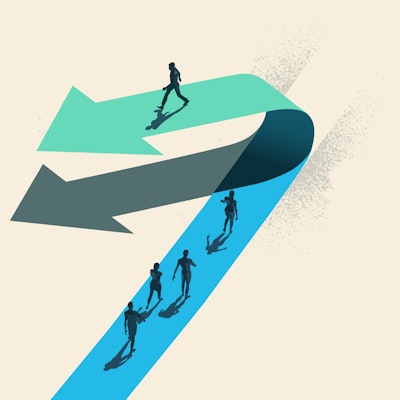
Sir Ken Robinson believed that as a society, we tragically underestimate and underutilize human ability. We create linear systems for our minds modeled on industry and manufac...

As we wrap-up another year of elevating big ideas at Aspen Ideas: Health, we're excited to share the 15 most-watched sessions from the event. These conversations with inspirin...


Young people in America are struggling. The causes are varied and may not be entirely clear, but the results are unfortunately unmistakable. Many of our youth feel lonely, iso...
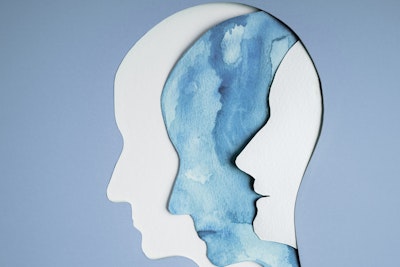
In America, millions of people struggle with mental health including depression, anxiety, and more — all further exacerbated by living through a pandemic. The National Allianc...

New York Times columnist and bestselling author David Brooks is known for bringing his thoughtful reflections on politics and culture, but at this year’s Aspen Ideas Festival,...

Jump in by watching our 15 most popular talks of all time. From black holes to jazz and civil rights to psychology hacks, we've collected the talks that remain audience favori...








